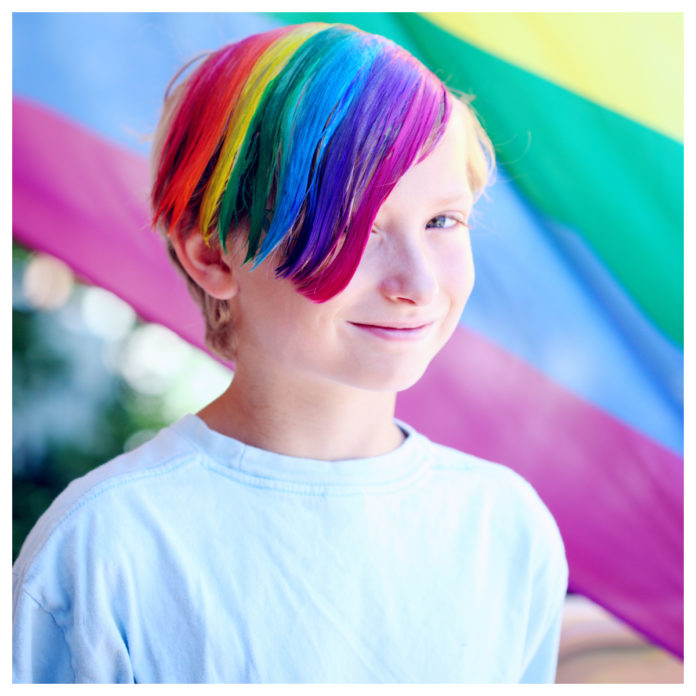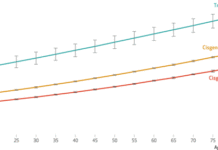LGBT individuals have become more accepted and welcomed in India during the past decade, particularly in urban areas. However, the majority of LGBT persons in India continue to live a secretive lifestyle out of fear of prejudice from their families, who may view homosexuality as a sin. Even while LGBTIQ+ persons are becoming more accepted by society and are more visible in the media and public life, many LGBTIQ+ people continue to face violence, harassment, and discrimination at their places of employment, their places of education, and in other public and private settings which continues to have an impact on their mental health.
We will hear from two doctors today about how societal pressure impacts the mental health of teenagers who identify as genderqueer.

1. What mental health issues make the LGBTQI+ younger generation one of society’s most vulnerable groups?
LGBTQ people experience higher mental health problems than heterosexual people. They develop these mental health problems as a result of the stigma, prejudice, and discrimination they experience for being different. Dr. Venkatesh Babu, Consultant-Psychiatrist at Fortis Hospitals Bangalore, elaborates on the health issues by saying, “There are various mental health issues reported in this group like depression (about 2/3), traumatic stress disorder (about half), suicide (almost 40%), substance use disorder (40%), and anxiety disorder (about 1/3). These illnesses are further complicated by the identity of the members of LGBTQ like non-acceptance by the majority, difficulty in being employed, poor support system, poverty, lack of educational opportunities, aggression, trauma, and abuse towards them which further serve as barriers in seeking medical help.”

2. One of the most difficult aspects of working with LGBT youth is the question of family acceptance. How important is it to integrate families in the support of LGBT youth?
Parents react in a number of ways when their child comes out as LGBTQ. At another end of the spectrum, they might even reject their child and send them away. On the other extreme, they embrace their child’s uniqueness. Dr. Shalini Joshi, Internal Medicine, Fortis Hospital, Bannerghatta Road, Bangalore, comments on how crucial it is for parents to be accepting: “Lack of family and social acceptance can affect LGBTQ teens emotionally and mentally. This may lead to psychiatric problems, substance misuse, and even suicide in some cases. The environment and the way they are treated, can make them uncomfortable. Due to prejudice and cultural pressures, this age group attempts suicide at a higher rate than other age groups. Families that are accepting and supporting encourage positive outcomes for LGBTQ youth. Lesbian and bisexual women appear to be more likely to be overweight and receive less cancer screenings as a preventive measure. While transgender people can experience mental health concerns and are less likely to have health insurance, gay men are more likely to contract STDs and HIV. As the LGBT youth might feel cut off from the society and lonely, they might develop or turn to substance abuse problems.”

3. What are some strategies organizations can follow to promote positive and healthy outcomes for youth who are LBGT?
Organizations can follow some healthy outcomes to support gender-queered individuals by having a better awareness of the difficulties and problems that LGBTQI+ adolescents face. The solutions are explained by Dr. Venkatesh, who states, “These individuals can be suffering from their day-to-day experiences which may be impacting their mental health even in the absence of mental illnesses. Thus, mental health management in LGBTQ kind of special groups requires certain systemic solutions like building awareness about the groups in the general public which can be in the form of pride, teaching the young ones about their uniqueness, and challenges and respecting them, providing employment/housing opportunities, etc.”
For LGBTQIA+ youth, feeling safe and supported might be more challenging due to discrimination, loneliness, harassment, and safety concerns. Youth who identify as LGBTQIA+ can try to establish support networks in their neighbourhood or access online resources that may be able to offer care and support that affirms their identity.
Also Read: Monday Mind Talks: What is flight and fight response? Expert reveals








